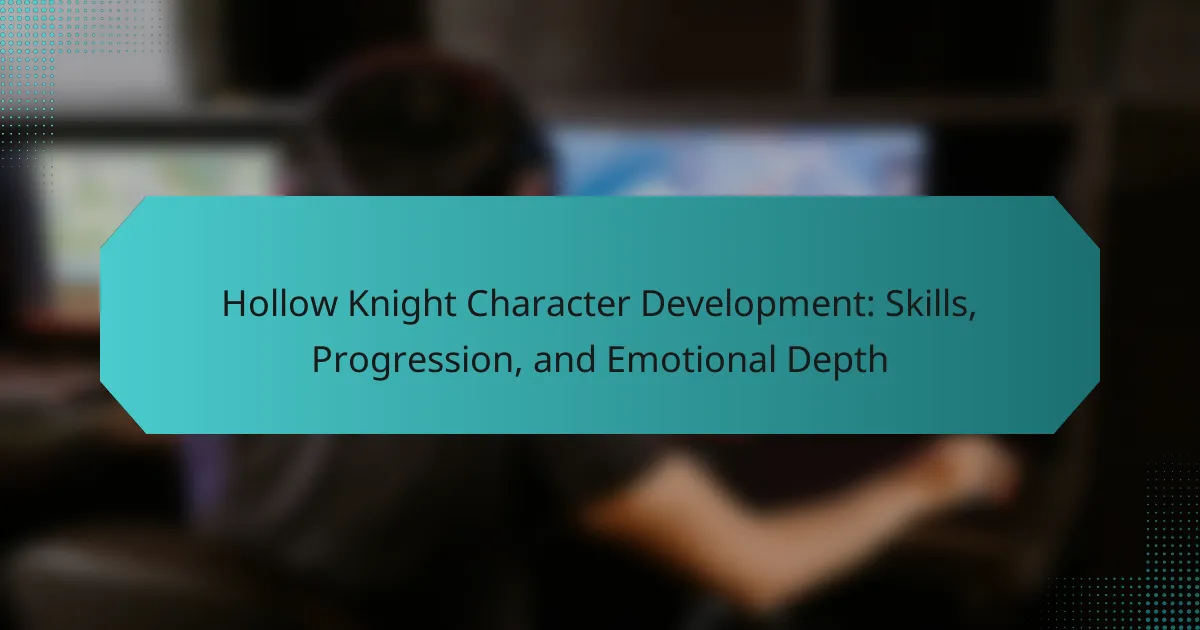Effective inventory management is crucial for enhancing player engagement in indie fantasy adventure games. This article explores strategies for categorising items, optimising user interfaces, and improving overall user experience. Key features such as customisable layouts, sorting options, and responsive feedback will be discussed. Additionally, the impact of platform-specific design on inventory systems will be examined […]

Gris: Visual Storytelling, Music Composition, and Emotional Impact
Gris captivates players with its unique blend of visual storytelling and music composition, creating a profound emotional impact. The game’s evolving colour palette and symbolic imagery enhance the narrative. Music complements the visuals, reflecting the protagonist’s journey through grief. Together, these elements foster a deeply introspective experience, setting Gris apart in the gaming landscape. What […]

Night in the Woods: Themes of Mental Health, Characters, and Art Direction
Night in the Woods addresses critical themes of mental health, showcasing characters grappling with anxiety, depression, and existential crises. The article explores the unique journeys of characters like Mae and Angus, highlighting their personal growth and coping mechanisms. Additionally, it examines the game’s distinctive art direction, which visually expresses emotional states and enhances storytelling. Cultural […]

Night in the Woods: Social Commentary, Character Development, and Artistic Direction
“Night in the Woods” offers a profound exploration of social issues, including economic decline and mental health. The game excels in character development, providing diverse perspectives through its protagonists. Its artistic direction enhances the narrative, using visual storytelling to evoke emotional responses. Together, these elements create a compelling critique of contemporary social realities. How does […]

Celeste: Level Design, Narrative Themes, and Accessibility Features
Celeste offers a unique gaming experience through its intricate level design, emotional narrative themes, and innovative accessibility features. The level design enhances gameplay by balancing challenge and mastery. The narrative explores themes of perseverance and mental health, creating a deep connection with players. Accessibility options ensure inclusivity, allowing a diverse audience to engage with the […]

Crafting Dynamic Worlds in Indie Fantasy Adventure Games: Techniques, Tools, and Examples
Creating dynamic worlds in indie fantasy adventure games enhances player engagement and immersion. Key techniques include procedural generation for diverse landscapes, player agency that shapes narratives, and deep lore that enriches storytelling. Successful examples like “Hollow Knight” and “Disco Elysium” showcase innovative design and cultural influences. Developers face challenges in balancing player freedom with narrative […]

Hollow Knight Character Development: Skills, Progression, and Emotional Depth
Hollow Knight offers players a rich character development experience through skill acquisition, progression systems, and emotional depth. Key skills include combat abilities, mobility options, and unique talents that enhance gameplay. Characters evolve as players unlock new techniques, while their backstories and interactions reveal profound emotional narratives. Understanding these elements can significantly enrich your journey through […]

Outer Wilds: Exploration Mechanics, Narrative Structure, and Environmental Design
Outer Wilds captivates players with its unique exploration mechanics and rich narrative structure. The game emphasizes curiosity through a dynamic solar system and a compelling time loop mechanic. Its environmental design fosters immersion and discovery, featuring interconnected worlds and diverse ecosystems. Players navigate challenges that enhance engagement and deepen their connection to the game’s universe. […]

The Banner Saga: Character Development, Choices, and Consequences
Character development in The Banner Saga deeply impacts gameplay and narrative outcomes. Players’ choices shape character interactions and moral dilemmas, influencing story progression and relationships. Unique character traits affect combat strategies and resource management, leading to varied gameplay experiences. The consequences of decisions enhance emotional connections and reflect themes of sacrifice and survival throughout the […]

Exploration Mechanics in Indie Fantasy Adventure Games: Techniques, Rewards, and Player Agency
Exploration mechanics in indie fantasy adventure games enhance player engagement and immersion. Key techniques include open-world design, environmental storytelling, and dynamic quest systems. Players are rewarded with unique items and lore, fostering agency and replayability. Cultural influences shape these mechanics, leading to varied gameplay experiences across different regions. What are the key exploration mechanics in […]
